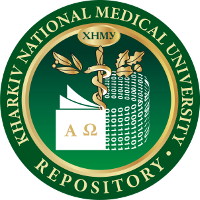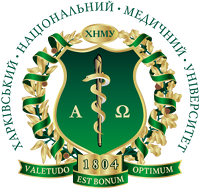Please use this identifier to cite or link to this item:
http://repo.knmu.edu.ua/handle/123456789/11238| Title: | Implementation Of Modern Bioethics Principles In Nigerian Medicine |
| Authors: | Nongo, Tersoo Honchar, Oleksii Гончарь, Алексей Владимирович Гончарь, Олексій Володимирович |
| Issue Date: | Mar-2015 |
| Citation: | Nongo T. Implementation Of Modern Bioethics Principles In Nigerian Medicine / T. Nongo, O. Honchar // Implementation of biethics principles in clinical practice : IV International scientific students`conference, dedicated to the 210th anniversary of KhNMU, 31 of March 2015 : abstract book. – Kharkiv : KhNMU, 2015. – P. 46–48. |
| Abstract: | In 1996, a controversial drug trial conducted during a meningitis outbreak caused fatalities, triggering a backlash against researchers and creating suspicion of vaccines. This led to a resurgence of polio, which spread to neighboring countries. Meanwhile, Western organizations were gearing up efforts to combat HIV/AIDS and malaria in African countries, including Nigeria. Global outsourcing of clinical trials was growing in popularity, taking advantage of low-cost settings with little or no regulation. Finally, the "Out of Africa" theory of evolution was generating additional interest among researchers keen to conduct population studies in the continent that might determine the genetic basis of diseases. At the same time, Nigeria was going through political change, adopting a democratic government in 1999 that began engaging with civil society to improve conditions, including health, Adebamowo remembered. He convinced officials that research and bioethics should play an important role. "There was some sensitivity to research ethics but it was not formal, it was not large scale and it was not pervasive." Adebamowo began his bioethics training program with a Fogarty planning grant in 2004. He and his team developed web resources, conducted sensitivity and public awareness campaigns, and offered training to institutions to strengthen their research ethics committees. Once he received a full grant - funded by Fogarty and the National Human Genome Research Institute - he launched a master's degree program designed to serve as a bioethics resource for all of West Africa. The first class of master's students were drawn from nursing, biomedical research and public health. Coursework included classes on informed consent, research designs, philosophy of bioethics, religion and ethics, and qualitative and quantitative research methods. "For us in Nigeria, the Fogarty funding for bioethics changed the entire landscape. What we have now would have been impossible without the Fogarty funding," he said. Previously, individuals who received international training in bioethics would return to home "like being cast loose on an ocean, with no focus, no organizing principle and no idea of how they could continue to use that skill." Bioethics was also significant as the first-ever multidisciplinary degree program developed at Ibadan, involving faculty collaborators from 13 different departments, from philosophy and law, to sociology, psychology and nursing. "Ethics capacity increases awareness of the need to respect our collective humanity and think even more about the most scientifically rigorous method of testing a hypothesis without research misconduct." Nigeria presents specific challenges to consent due to illiteracy and religious differences. A large segment of the population may not accept scientific explanations of diseases. Culture, education and religion play a major role in national identity, acceptance of what is wrong or right, and the level of privacy that is appropriate. The Nigerian educational system, like many in developing countries, is based on rote learning. "To make students walk away from that learning is quite a challenge," Adebamowo said. "My goal is for them to take the tools they've been given and use them to engage with the ethical issues they come across. What we are trying to do is not just import Western concepts but to teach students in Nigeria the philosophical methods, the quantitative and qualitative research methods that they can use to grapple with the ethical issues that occur within their research environment." Similarly, Adebamowo said he's built a flexible national ethics committee that will evolve over time. "It's not a dormant committee but is functioning and responding to its environment." The cultural shift has been enormous and will have lasting impact, he said. "The most significant thing we've achieved is elevating the status of research ethics and helping researchers and Nigerians in general appreciate the value of ethical conduct of research," said Adebamowo. "We have more people who know that there is a way of doing research that is both scientifically appropriate and ethically sound. Those people will pass this down to their trainees, so over time a better research culture will develop." |
| URI: | https://repo.knmu.edu.ua/handle/123456789/11238 |
| Appears in Collections: | Наукові роботи молодих вчених. Кафедра пропедевтики внутрішньої медицини № 1, основ біоетики та біобезпеки |
Files in This Item:
| File | Description | Size | Format | |
|---|---|---|---|---|
| Nongo Tersoo_gr7_46-48.doc | 30 kB | Microsoft Word | View/Open |
Items in DSpace are protected by copyright, with all rights reserved, unless otherwise indicated.

